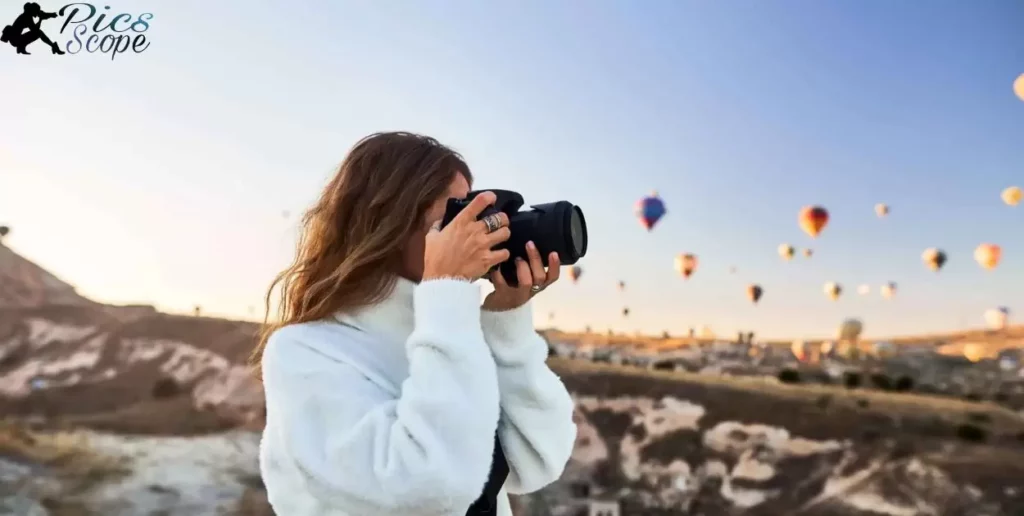“Llc for Photography” refers to a Limited Liability Company specifically established for photography businesses. This legal structure provides photographers with liability protection, separating personal and business assets, while offering a flexible and straightforward framework for managing their photography ventures.
Embarking on a photography venture? Wondering, ‘Do I need an LLC for photography?’ Unravel the lens to legal clarity and capture peace of mind by exploring the advantages an LLC can offer your budding photography business. Seize the moment—discover if an LLC is the frame your entrepreneurial vision needs.
Deciding whether to form an LLC for your photography business depends on factors like liability protection and tax benefits. An LLC can shield your personal assets from business debts and provide a flexible business structure, but it’s essential to weigh the costs and requirements against the potential advantages based on your specific situation.
Do Freelance Photographers Need A Business License
Freelance photographers often wonder if they need a business license. The answer is usually yes. In many places, a business license is required for any professional offering services, including photography. It ensures compliance with local regulations and helps establish credibility for the freelance photographer.
Obtaining a business license is a straightforward process. Freelancers can check with their local government or city hall to find out the specific requirements and fees. Having a business license not only meets legal obligations but also enhances the professional image of freelance photographers, making it a valuable step in their career.
Photography as a Business Venture
Starting a photography business can be exciting and rewarding. In this venture, photographers capture moments that tell stories, creating a visual narrative for clients. They market their services, build a strong online presence, and network to attract potential customers.
Successful photography businesses require both artistic talent and entrepreneurial skills. Photographers must set competitive pricing, deliver high-quality work, and continuously adapt to industry trends. By focusing on customer satisfaction and effective business strategies, photographers can turn their passion into a thriving business venture.
Legal Structure for Photographers
Choosing a legal structure is crucial for photographers. Sole proprietorships offer simplicity, making you the sole owner and decision-maker. However, forming a limited liability company (LLC) provides liability protection, separating personal and business assets.
An LLC offers flexibility in taxation, allowing you to choose between pass-through taxation or corporate taxation. Ultimately, understanding the legal structures available empowers photographers to make informed decisions that align with their business goals and protection needs.
Pros and Cons of Establishing an LLC
Here’s a simple table outlining the pros and cons of establishing an LLC for photographers:
| Pros of Establishing an LLC for Photographers | Cons of Establishing an LLC for Photographers |
| Limited Liability Protection | Formal Documentation and Administrative Requirements |
| Personal Asset Protection | Additional Costs for Formation and Maintenance |
| Flexible Taxation Options | Potential Complexity in Tax Filings |
| Credibility and Professional Image | Limited Flexibility in Profit Distribution |
This table provides a quick overview of the advantages and disadvantages photographers may encounter when considering the establishment of an LLC.
Key Considerations Before Starting
Before embarking on a photography journey, consider your gear. Ensure your camera and lenses meet your needs. Check for essential accessories like memory cards and a sturdy camera bag.
Next, explore your photography niche. Identify your passion, whether it’s portraits, landscapes, or events. This focus will guide your learning and help you build a cohesive portfolio. Lastly, think about post-processing. Familiarize yourself with editing software to enhance your photos.
Liability Protection for Photographers
Photographers benefit from liability protection, safeguarding them from legal issues. This protection shields them if someone is injured during a photoshoot or if property is damaged. It ensures photographers can focus on capturing moments without worrying about potential legal liabilities.

Liability protection is crucial for photographers working in various settings. Whether photographing events, portraits, or landscapes, having insurance safeguards against unforeseen accidents. This coverage provides peace of mind, allowing photographers to pursue their passion with confidence and security.
benefits of an llc for photography
- Limited Personal Liability: One major benefit of forming an LLC for photography is that it separates personal and business liabilities. In the event of legal issues or debts, your personal assets are typically protected.
- Tax Advantages: LLCs offer flexibility in terms of taxation. As a photographer, you can choose to be taxed as a sole proprietor, partnership, S corporation, or C corporation. This flexibility allows you to optimize your tax situation based on your business needs.
- Professional Image: Establishing an LLC lends credibility and professionalism to your photography business. Clients may view your business more seriously, potentially leading to increased trust and more opportunities.
- Operational Flexibility: LLCs provide flexibility in terms of management and operations. You have the freedom to choose how you want your business to be managed, whether by members or appointed managers, allowing you to adapt your structure to fit your needs.
- Easy Transfer of Ownership: If you plan to expand your photography business or pass it on to someone else in the future, an LLC makes the transfer of ownership relatively straightforward. This can be advantageous for long-term planning and business continuity.
Tax Implications of an LLC in Photography
Starting an LLC for your photography business has important tax implications. When you form an LLC, you report business income and expenses on your personal tax return. This structure offers flexibility and simplicity in managing your tax responsibilities.
As an LLC owner, you can take advantage of potential tax deductions, such as equipment purchases and business-related expenses. Additionally, the LLC structure allows you to avoid double taxation, common in corporations. Understanding these tax aspects helps you make informed decisions as you establish and run your photography business.
Alternatives to an LLC for Photographers
Photographers can explore options beyond an LLC for their business structure. One choice is a sole proprietorship, where one person owns and operates the photography business. This option offers simplicity and ease of management without the formalities of forming a separate legal entity.
Another alternative is a partnership, ideal for photographers working together. Partnerships share responsibilities and profits, making it a collaborative choice for those who want to combine their skills and resources. By considering these alternatives, photographers can find the business structure that best fits their needs and goals.
State-Specific Requirements for LLCs
Each state sets specific rules for LLCs owned by photographers. These regulations govern the formation and operation of photography businesses. Understanding and complying with these state-specific requirements is crucial for photographers to establish and maintain their limited liability companies successfully.
Photographers should research and be aware of the unique legal obligations imposed by their state. These regulations cover aspects such as registration procedures, licensing, and tax obligations, ensuring that photographers can navigate the business landscape effectively while protecting their personal assets.
Do i need an llc for photography if i
If you operate a photography business, having an LLC is generally recommended. An LLC, or Limited Liability Company, provides legal protection for your personal assets and simplifies business management.

By forming an LLC, you create a separate legal entity for your photography business. This separation shields your personal finances from business liabilities. Additionally, an LLC offers a flexible structure and straightforward tax benefits, making it a practical choice for photographers seeking a balance between legal protection and simplicity.
Steps to Forming an LLC for Photography
Research Your State’s Requirements:
Look into the specific regulations and requirements for forming an LLC in your state. Each state may have slightly different procedures.
Choose a Unique Business Name:
Pick a distinct and memorable name for your photography LLC. Ensure it complies with your state’s naming rules and is not already in use.
File Articles of Organization:
Prepare and submit the Articles of Organization to officially register your LLC with the state. This document outlines key details about your business.
Designate a Registered Agent:
Appoint a registered agent who will receive legal documents and official correspondence on behalf of your LLC. This person or service must have a physical address in the state.
Create an Operating Agreement:
While not required in all states, it’s wise to draft an operating agreement that outlines how your LLC will be managed, the roles of members, and other important details.
Obtain an EIN from the IRS:
Obtain an Employer Identification Number (EIN) from the IRS. This unique number is used for tax purposes and is essential for opening business bank accounts.
Comply with Local Regulations:
Be aware of and comply with any additional local business regulations or licenses required for photography services in your area. This may include zoning permits or professional licenses.
Choosing a Business Name and Domain
Picking a business name for your photography venture is crucial. Your name should reflect your style and be memorable for clients. Select a domain that aligns with your business name for a cohesive online presence.
When choosing a business name, consider its appeal and ease of recall. A clear and relevant name helps potential clients remember and find you online. Ensure your chosen domain is available to establish a strong and consistent brand identity across your photography business.
Registering Your Photography LLC
Starting a photography LLC is simple. Begin by choosing a unique name for your business. Then, register it with your state’s business office. Complete the necessary paperwork, pay the required fees, and you’ll officially have a registered photography LLC.
Once registered, your LLC provides legal protection and a professional image. Clients gain confidence in your services, and you can operate your photography business with peace of mind. Make sure to renew your registration as required to maintain your LLC status.
Drafting an Operating Agreement
Creating an operating agreement for your photography business is crucial. This document outlines how your company operates, addressing key aspects like member responsibilities, profit distribution, and decision-making processes.
To begin, clearly define each member’s role and contributions to ensure a smooth workflow. Specify how profits will be shared among members and establish a straightforward decision-making framework. Realtors Pay For Photography Crafting a well-thought-out operating agreement helps prevent conflicts and sets the foundation for a successful photography venture.
Should A Photographer Be An Llc Or Sole Proprietor
Choosing between an LLC and a sole proprietorship is crucial for photographers. An LLC, or Limited Liability Company, provides legal protection for personal assets and limits liability. On the other hand, a sole proprietorship offers simplicity but lacks the same level of legal protection.
Deciding the business structure depends on factors like liability concerns and the desire for a straightforward setup. Photographers must weigh the pros and cons to determine whether the added protection of an LLC is worth the complexity compared to the simplicity of a sole proprietorship.
Separating Personal and Business Finances
Running a photography business requires a clear division between personal and business finances. This practice ensures transparency and simplifies financial management. By keeping personal and business expenses separate, the photographer can easily track income, expenses, and tax obligations, fostering a more organized and efficient financial strategy.
This approach not only streamlines record-keeping but also helps the photographer maintain a professional image. Clients appreciate the clarity in financial transactions, and it allows the business to build trust and credibility. In conclusion, separating personal and business finances is a fundamental practice that contributes to the success and professionalism of a photography business.
Insurance Considerations for Photographers
Photographers must carefully assess insurance needs. Equipments like cameras and lenses require coverage against theft or damage. Purchasing comprehensive insurance safeguards photographers’ valuable tools and investments.
Liability insurance is crucial for photographers. Accidents happen during photo shoots, and liability coverage protects against potential legal issues. In conclusion, photographers should prioritize both equipment and liability insurance to ensure a secure and thriving photography business.
Ongoing Compliance and Reporting
Photographers need to stay updated on compliance requirements. They must actively report and address any changes in regulations. Keeping abreast of ongoing compliance ensures photographers can focus on their craft without facing legal issues.
Regular reporting is crucial for photographers. It involves consistently updating records and promptly addressing any compliance issues. By actively managing compliance and reporting, photographers can maintain a smooth workflow and avoid potential disruptions to their creative work.
Changing Business Structure Over Time
In recent years, photographers have witnessed a significant evolution in business structures. Initially, many photographers operated as sole proprietors, managing every aspect of their business independently. However, with the rise of digital platforms and the gig economy, a shift towards freelancing and collaboration has become more prevalent.
Photographers now often embrace flexible structures, joining creative collectives or forming partnerships to pool resources and expertise. This change allows them to adapt swiftly to industry trends and technological advancements, fostering a dynamic and resilient business environment for photographers in the modern era.
Impacts On Contracts And Client Relations
Contracts and client relations are crucial for photographers. Clear agreements ensure mutual understanding between photographers and clients.
Effective communication builds trust and helps avoid misunderstandings. Positive relationships with clients lead to repeat business and referrals for photographers.
Professional Image And Credibility
In the world of photography, building a professional image and credibility is crucial. Photographers achieve this by showcasing a strong portfolio that highlights their skills and creativity. Clients often seek photographers who exude competence and reliability, making a professional image essential for success in the competitive photography industry.
Maintaining credibility involves consistently delivering high-quality work and meeting client expectations. Reliable communication and a positive reputation contribute to a photographer’s professional image. As photographers actively build and uphold their credibility, they enhance their chances of attracting clients and establishing a lasting presence in the dynamic field of photography.
Seeking Professional Advice for Your Situation
When facing challenges in photography, consult experts for guidance. Professional advice enhances your skills and addresses specific issues. Seek experienced photographers who can provide tailored solutions to improve your craft.
Connecting with seasoned professionals offers valuable insights. They share practical tips to navigate challenges and elevate your photography game. Actively seeking advice from experts is a proactive step toward honing your skills and overcoming obstacles in the dynamic world of photography.
Should A Photographer Be An Llc Or Sole Proprietor
Choosing between an LLC or sole proprietorship is crucial for photographers. An LLC provides liability protection, separating personal and business assets. This shields the photographer’s personal belongings in case of legal issues. On the other hand, a sole proprietorship is simpler and has less paperwork, but it doesn’t offer the same level of liability protection.
Consider your business goals and risk tolerance. If you prioritize protection and plan to expand, an LLC might be ideal. For simplicity and a smaller scale, a sole proprietorship could be more suitable. Ultimately, the decision depends on your specific needs as a photographer.
Frequently Asked Question
Do I need a business account for photography?
Yes, having a business account for photography is beneficial. It helps separate personal and professional finances, simplifying bookkeeping and providing a more professional image to clients and partners.
What’s needed to start a photography business?
To start a photography business, you’ll need essential equipment like a camera and lenses. Additionally, consider legal requirements, such as business registration and permits, to ensure a smooth start.
Can you run a photography business from home?
Yes, you can run a photography business from home. Many photographers start and successfully operate their businesses from the comfort of their homes, saving on external rental costs and creating a convenient workspace.
How do I start a photography side business?
To start a photography side business, begin by honing your skills, creating a portfolio, and setting up a simple online presence. Then, promote your services through social media and local networks to attract potential clients.
Conclusion
The decision of whether to establish an LLC for photography hinges on your business objectives and risk considerations. For those seeking increased liability protection and a clear separation between personal and business assets, forming an LLC is advisable.
If simplicity and a lower administrative burden are your priorities, operating as a sole proprietorship might be more fitting for your photography endeavors. Assessing your specific needs and aspirations will guide you in determining whether or not you need an LLC for photography.







